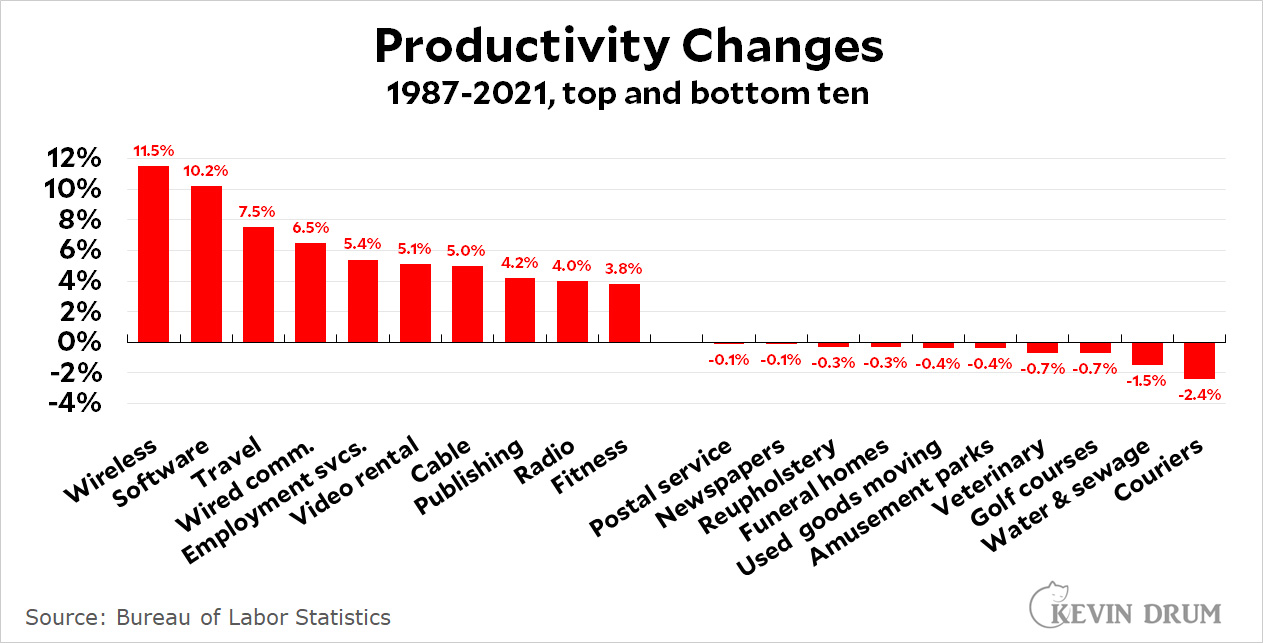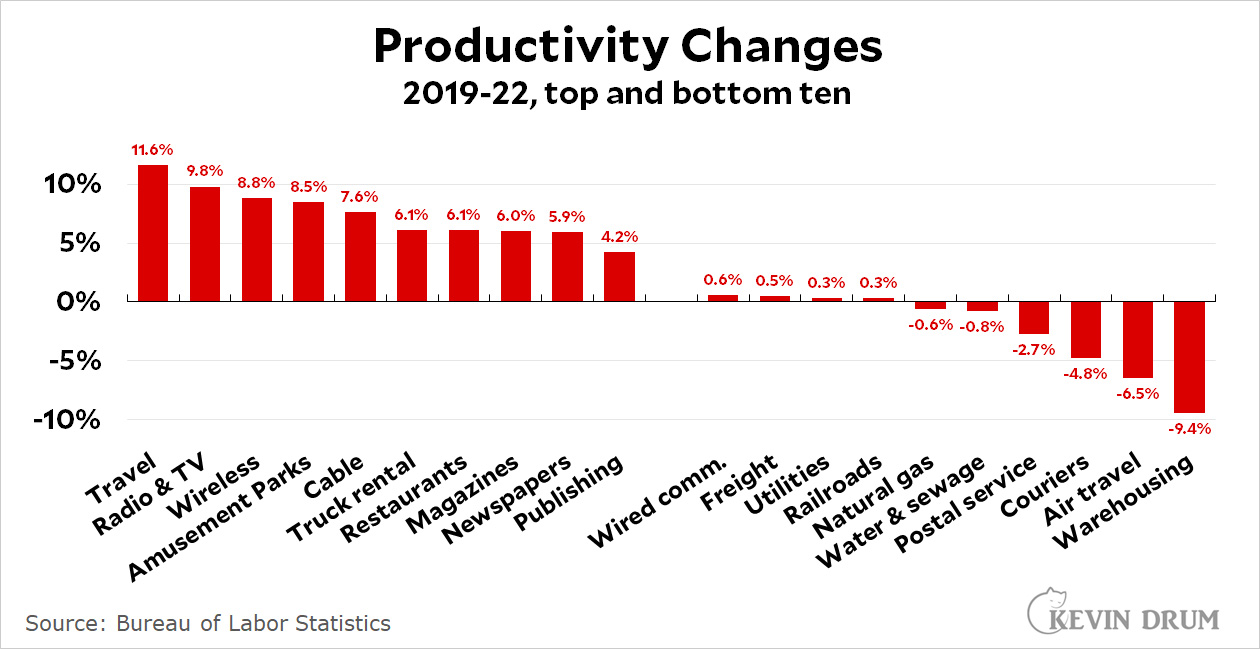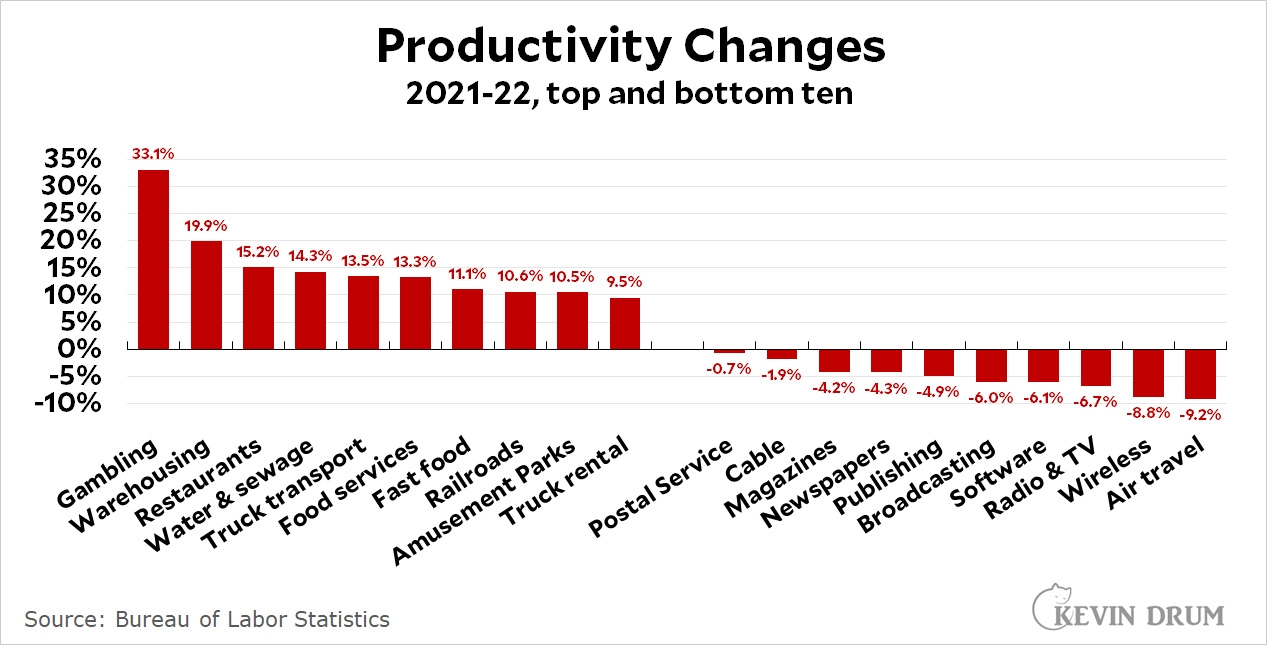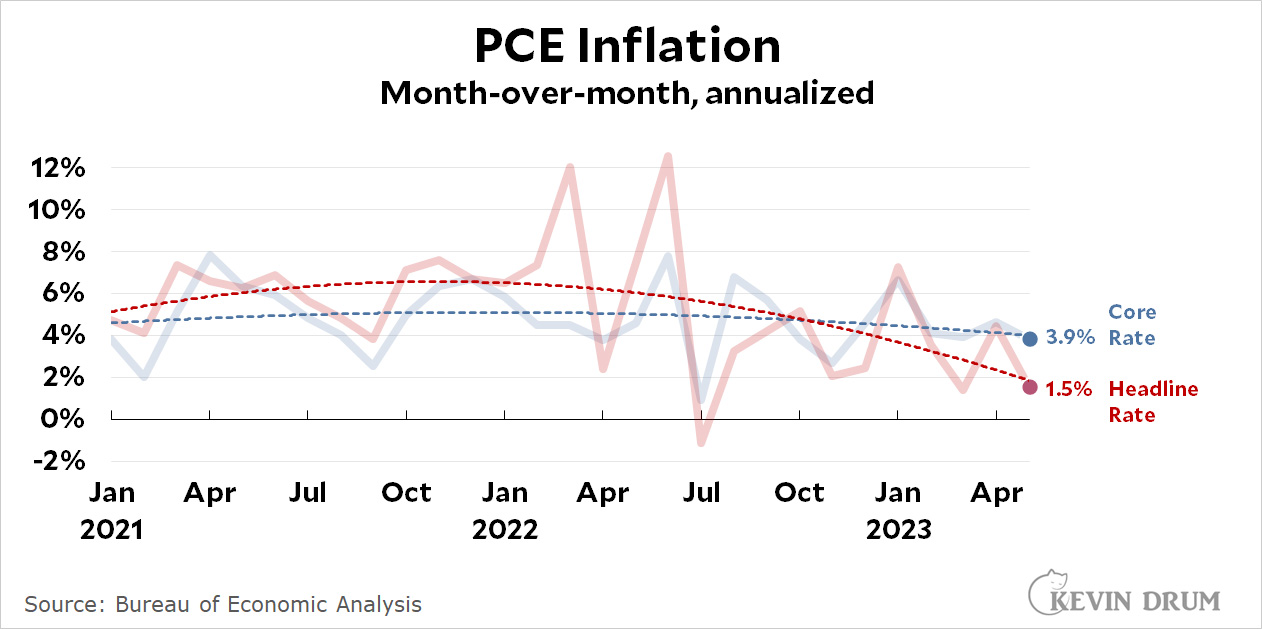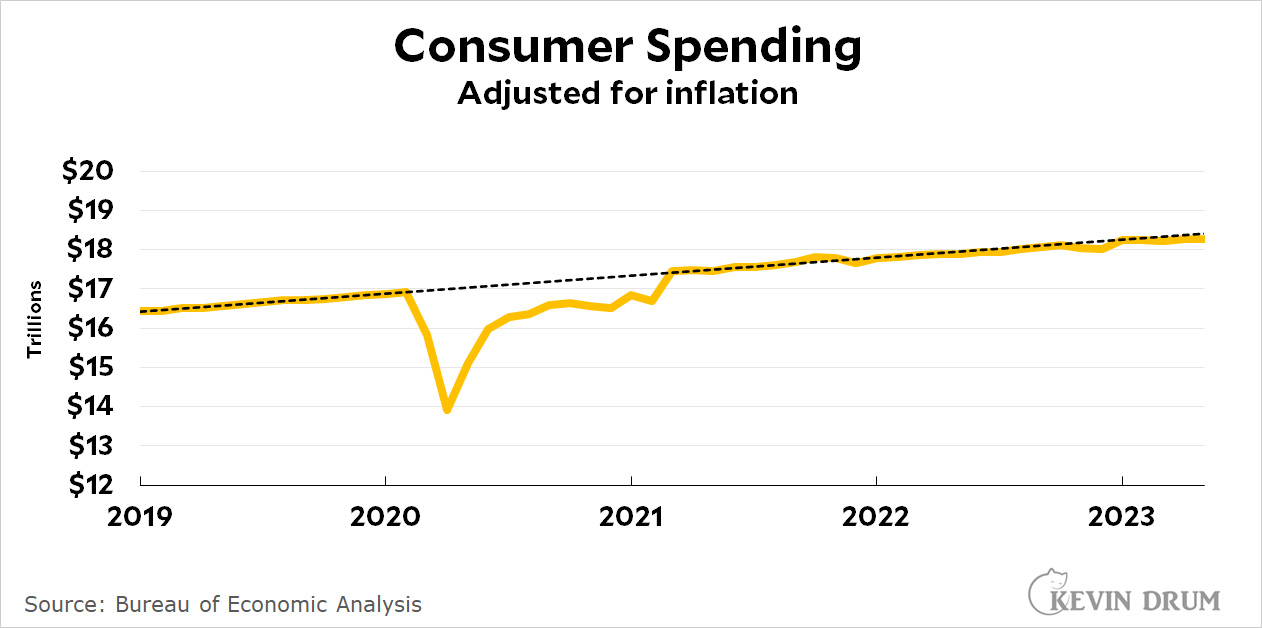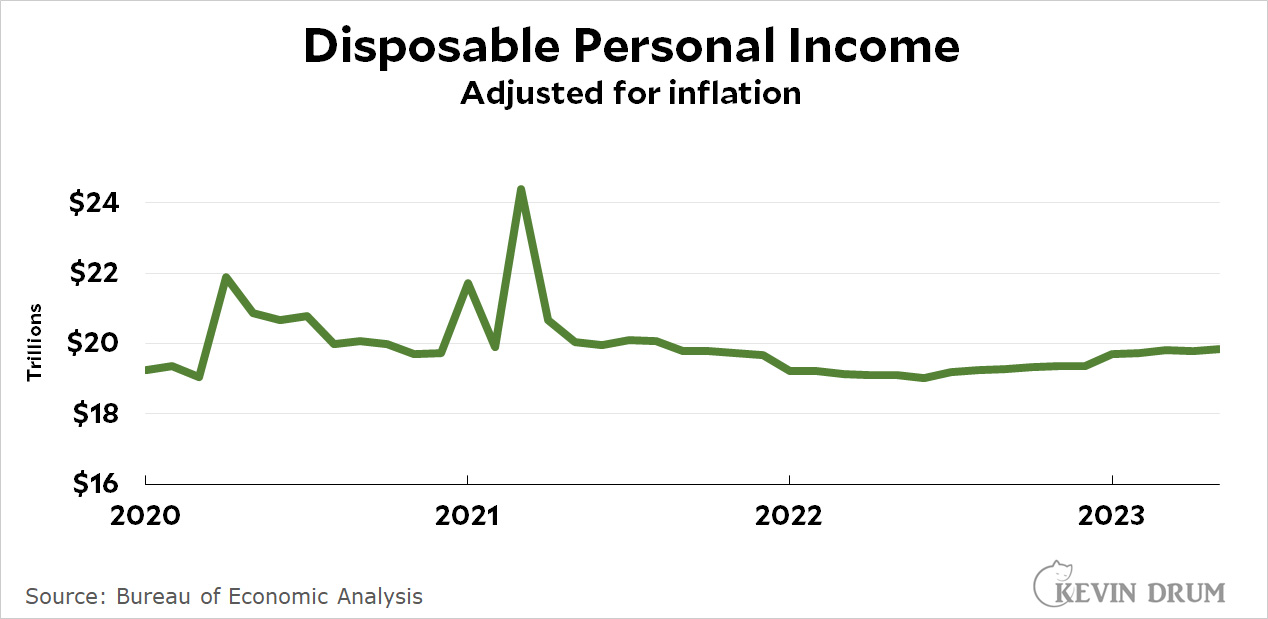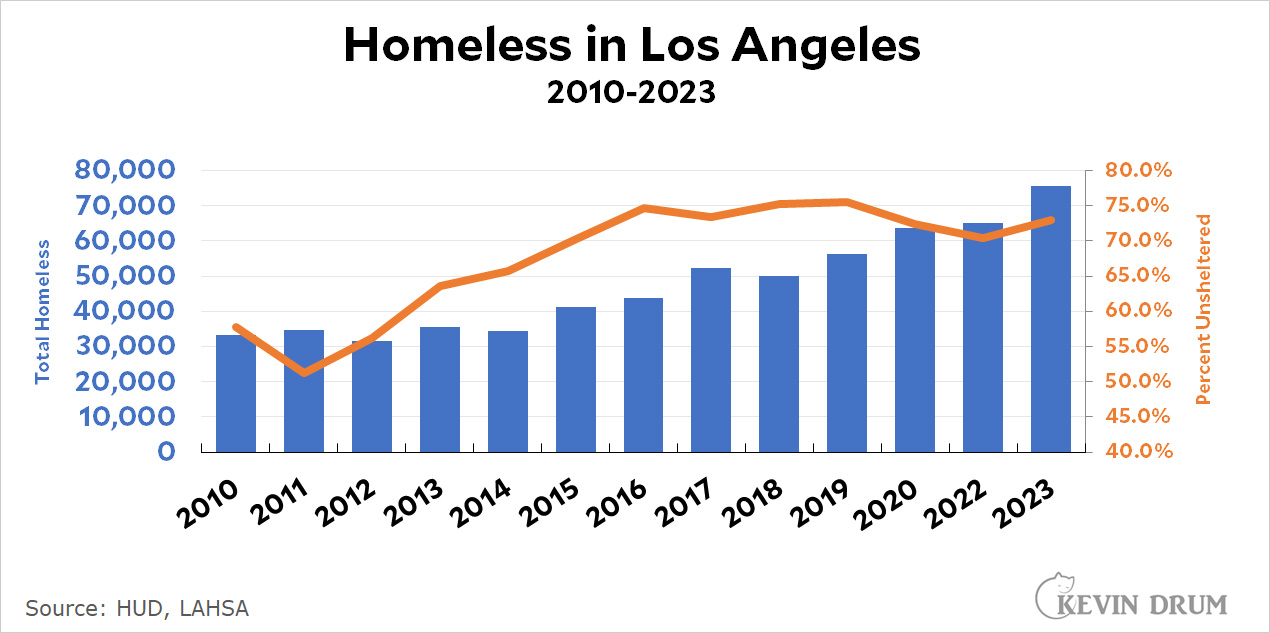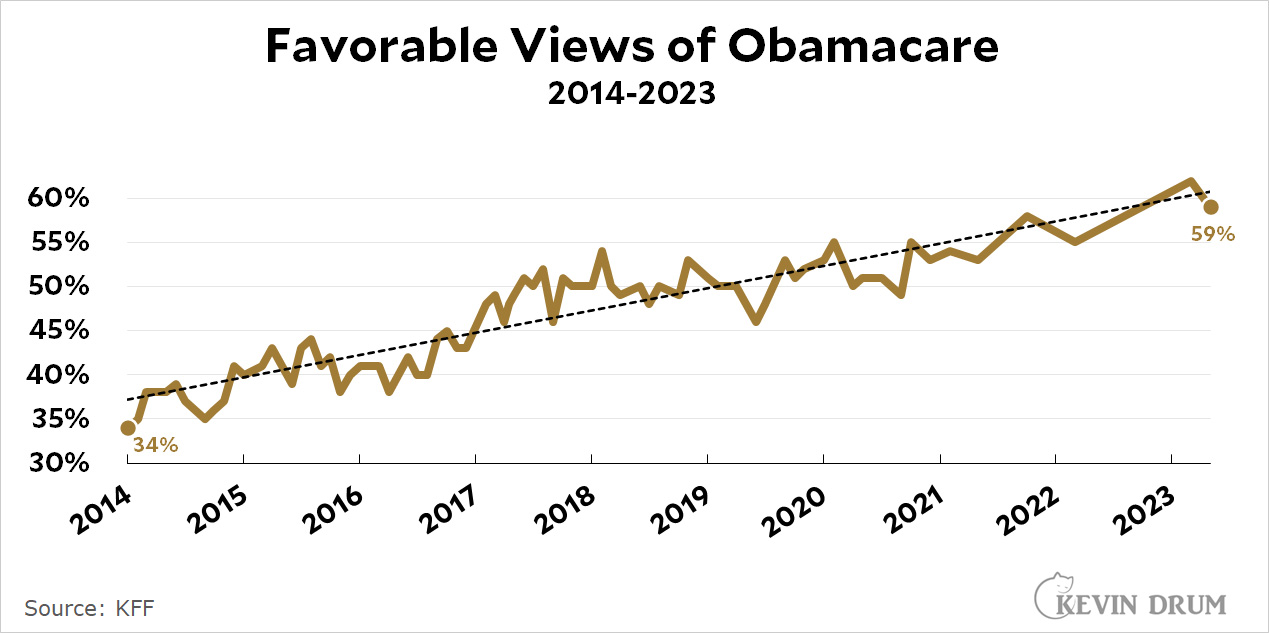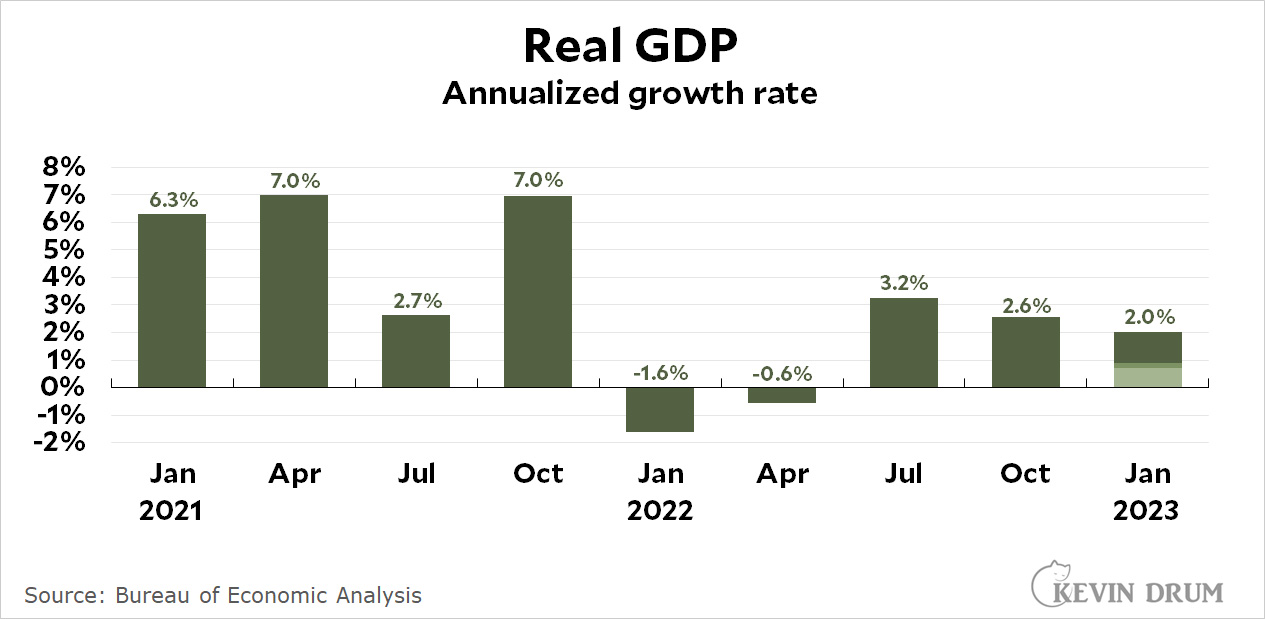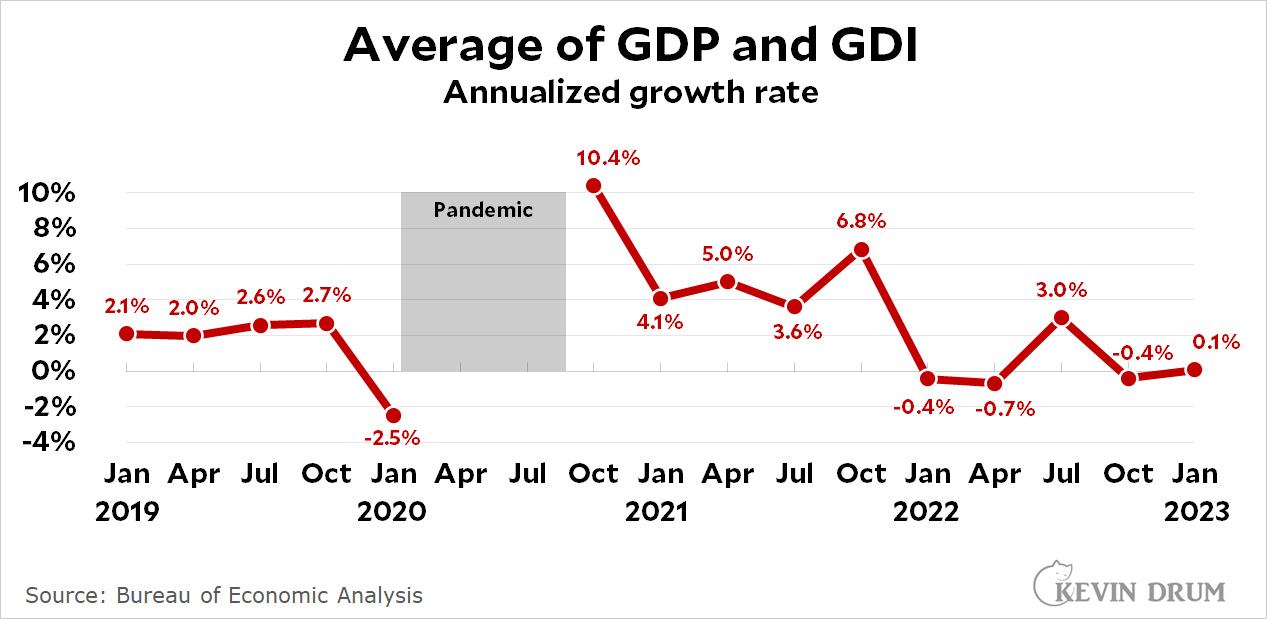Another day, another Supreme Court opinion. In yet another unsurprising decision, the conservative majority ruled today that President Biden's student loan forgiveness program violates the law. The key argument is about the meaning of the president's authority under the HEROES Act to "waive or modify" the student loan program:
The Secretary’s plan has “modified” the cited provisions only in the same sense that “the French Revolution ‘modified’ the status of the French nobility”—it has abolished them and supplanted them with a new regime entirely....Labeling the Secretary’s plan a mere “modification” does not lessen its effect, which is in essence to allow the Secretary unfettered discretion to cancel student loans. It is “highly unlikely that Congress” authorized such a sweeping loan cancellation program “through such a subtle device as permission to ‘modify.’ ”
The Secretary responds that the Act authorizes him to “waive” legal provisions as well as modify them....Here, the Secretary does not identify any provision that he is actually waiving. No specific provision of the Education Act establishes an obligation on the part of student borrowers to pay back the Government. So as the Government concedes, “waiver”—as used in the HEROES Act—cannot refer to “waiv[ing] loan balances” or “waiving the obligation to repay” on the part of a borrower.
....The sharp debates generated by the Secretary’s extraordinary program stand in stark contrast to the unanimity with which Congress passed the HEROES Act. The dissent asks us to “[i]magine asking the enacting Congress: Can the Secretary use his powers to give borrowers more relief when an emergency has inflicted greater harm?” The dissent “can’t believe” the answer would be no. But imagine instead asking the enacting Congress a more pertinent question: “Can the Secretary use his powers to abolish $430 billion in student loans, completely canceling loan balances for 20 million borrowers, as a pandemic winds down to its end?” We can’t believe the answer would be yes. Congress did not unanimously pass the HEROES Act with such power in mind.
Elena Kagan's dissent takes the opposite view:
The Secretary has the linked power to “waive or modify any statutory or regulatory provision” applying to the student-loan programs. To start with the phrase after the verbs, “the word ‘any’ has an expansive meaning.” “Any” of the referenced provisions means, well, any of those provisions.
....In the HEROES Act, the dominant piece of context is that “modify” does not stand alone. It is one part of a couplet: “waive or modify.” The first verb, as discussed above, means eliminate—usually the most substantial kind of change. So the question becomes: Would Congress have given the Secretary power to wholly eliminate a requirement, as well as to relax it just a little bit, but nothing in between? The majority says yes. But the answer is no, because Congress would not have written so insane a law.
There is nothing deeper in either the majority opinion or the dissent. The question is whether "waive or modify" allows the president merely to change the conditions of student loans or whether it allows him to eliminate the loans altogether. The majority says one thing and the dissent says the other, and the truth is that neither provides any kind of persuasive argument. They simply assert their sides.
I don't find this ruling objectionable. Compare it to yesterday's affirmative action ruling. The key error in that decision was the finding that affirmative action is legal, but only for a temporary period. That's wholly invented. There is nothing in either the Constitution or in statute that even hints at the idea that affirmative action must be time limited. If affirmative action were flatly illegal, that would be one thing, and the majority should have made that case. But having accepted that it's not illegal, they have no basis for a mere opinion that they find it tiresome that it's gone on so long.
There's no such problem in today's case. There is simply a disagreement over the words "waive or modify"—a phrase with enough looseness that it can reasonably be interpreted multiple ways. For my money, I think the majority has the slightly better of the argument, but it's a close call. It could have gone either way.



